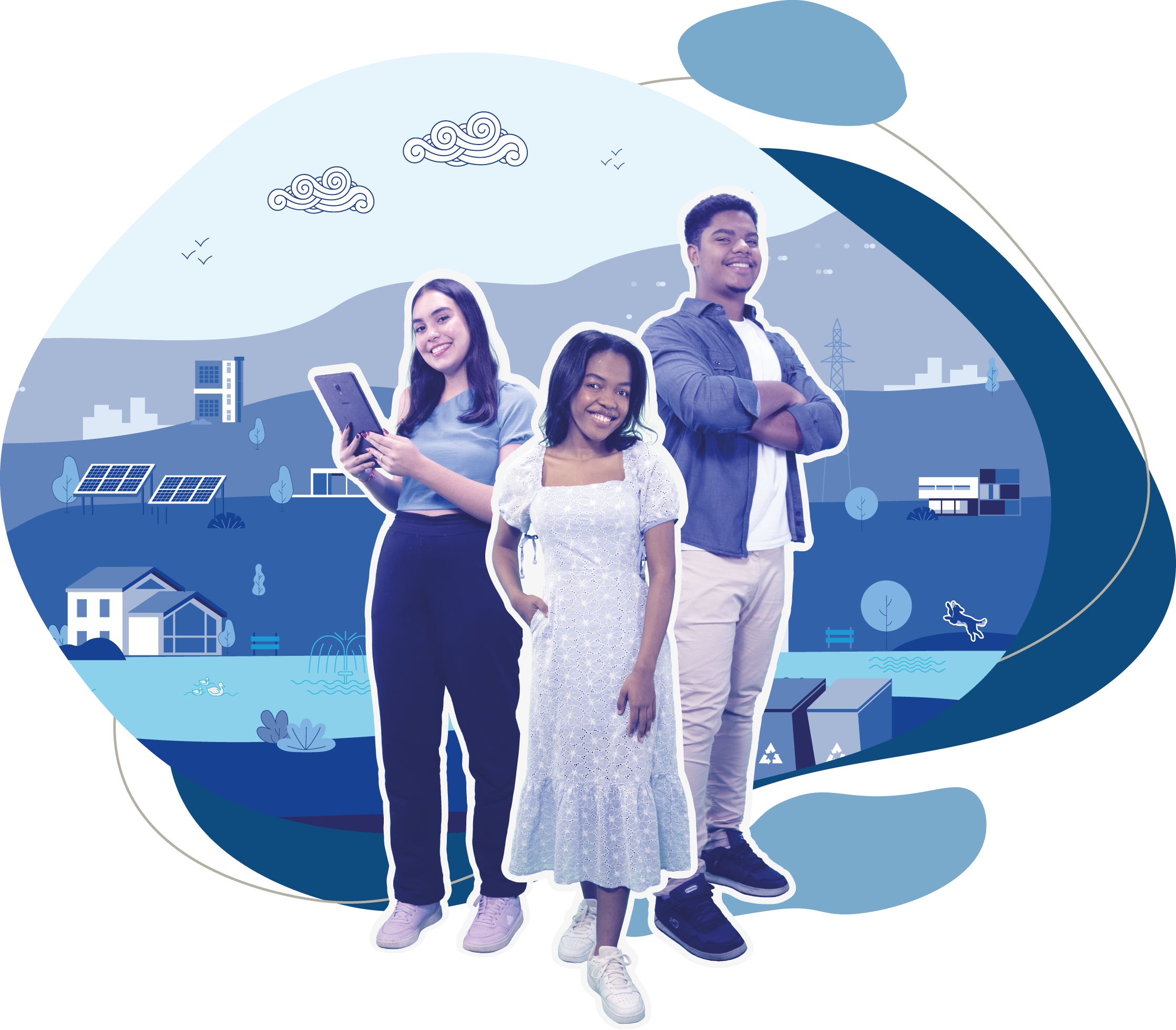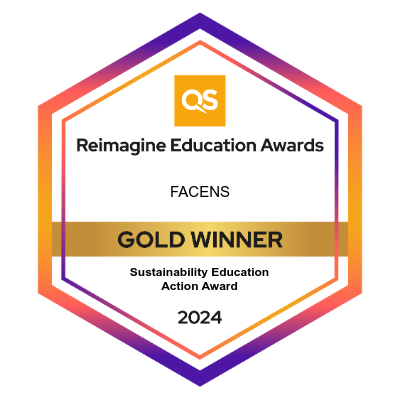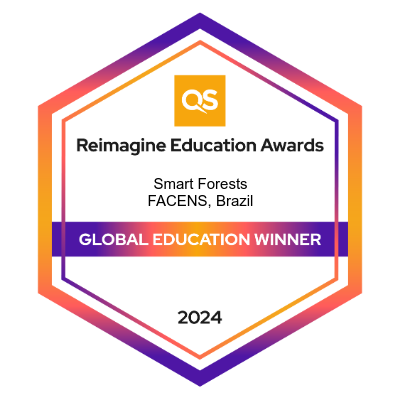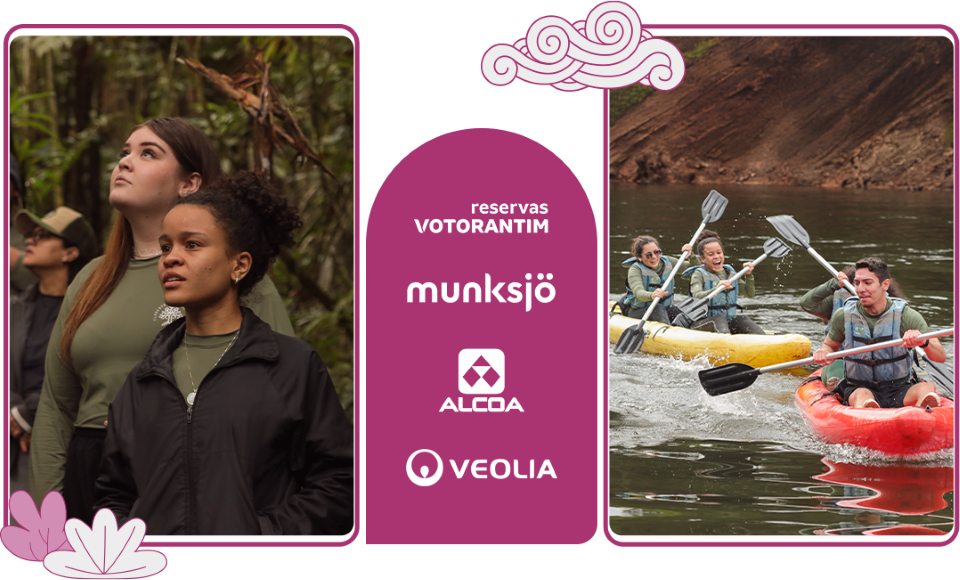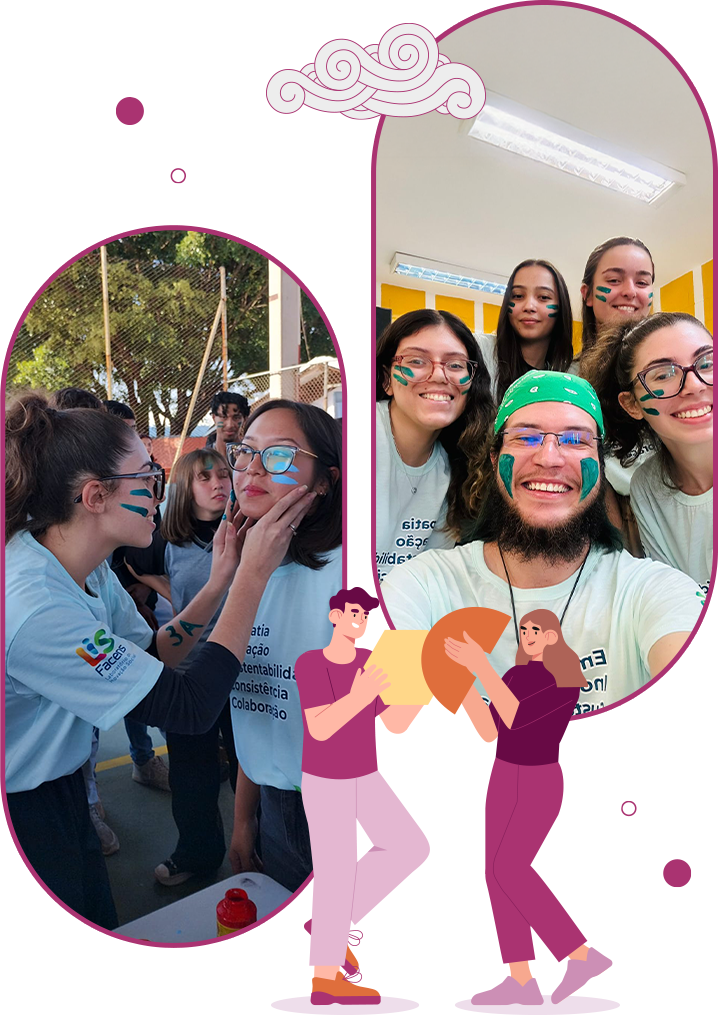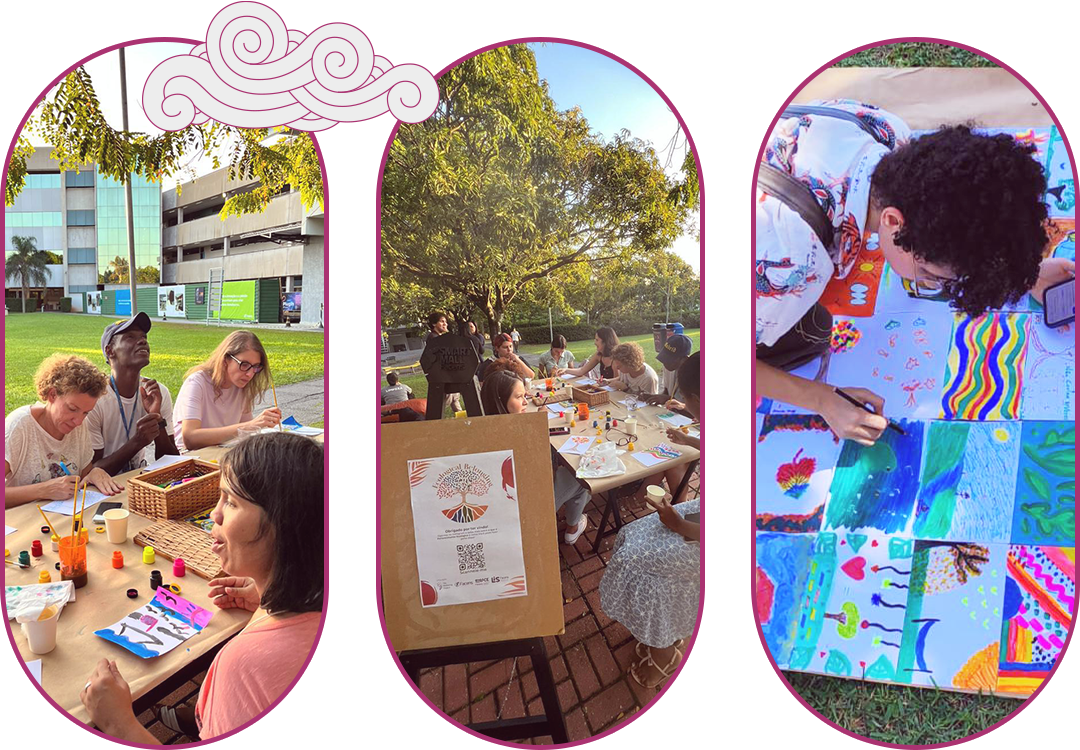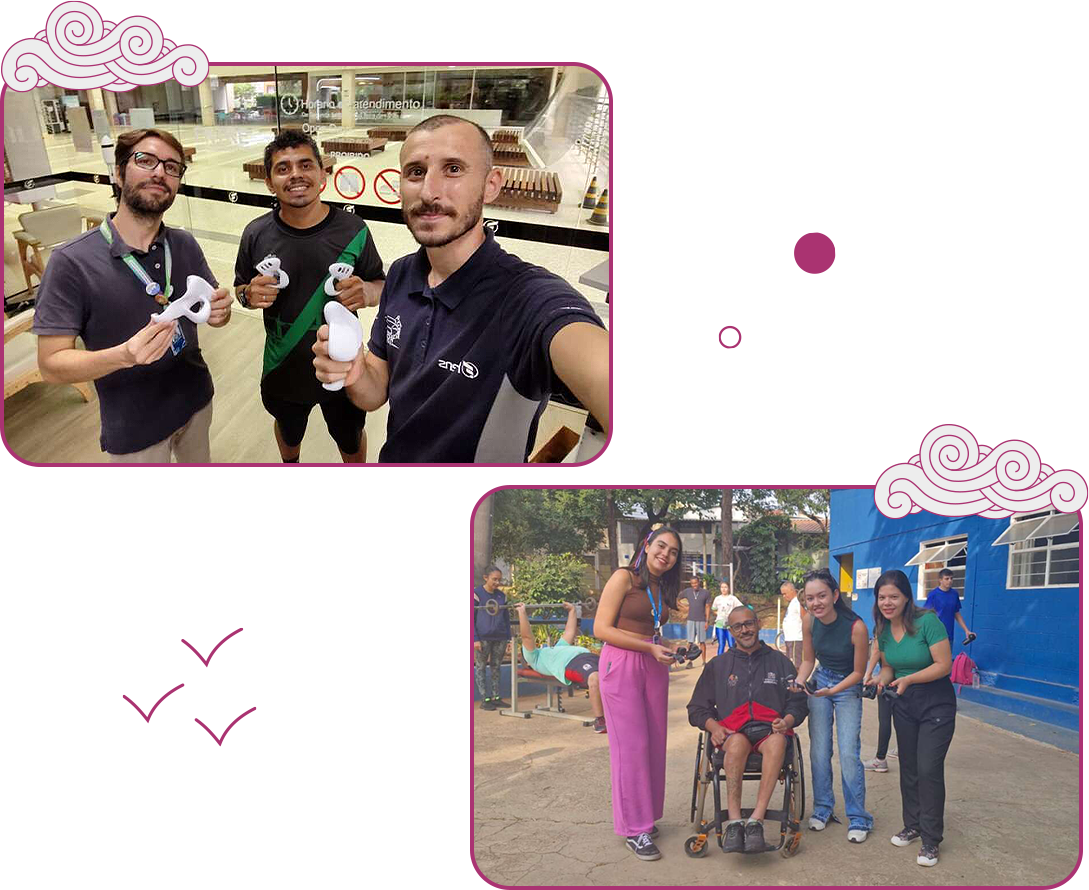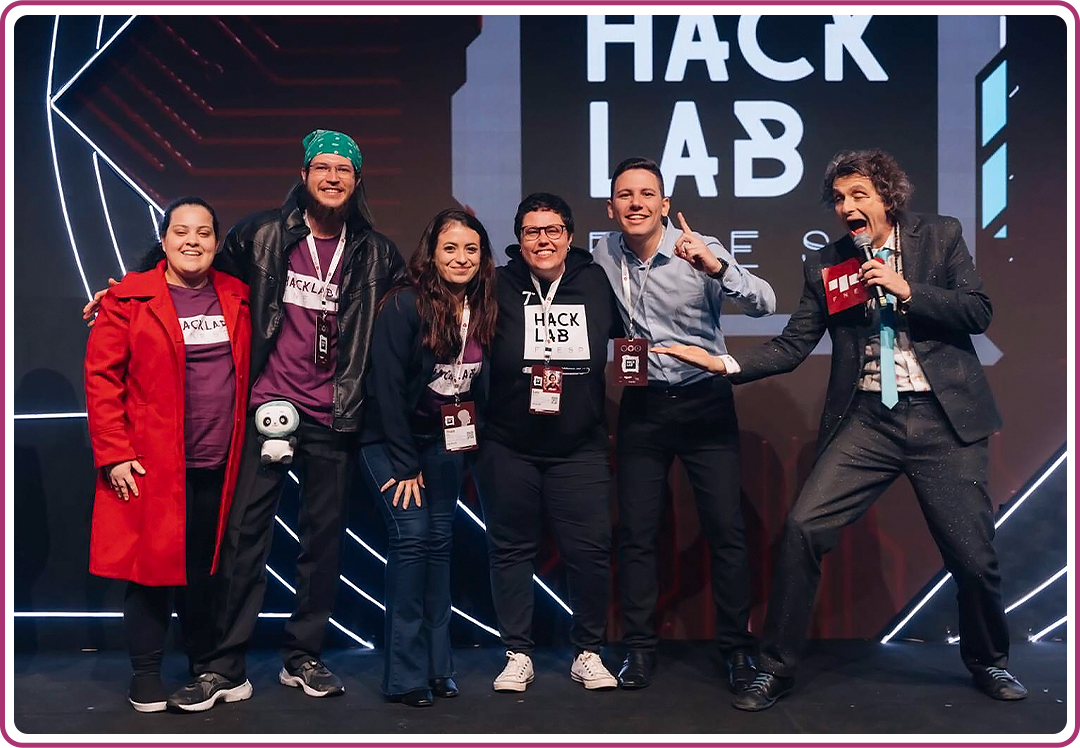In this edition, the project featured a major innovation: the introduction of UniFlorestas, a learning platform with content related to sustainability, bioeconomy, forest belonging, soft and hard skills, among other topics addressed by the project. Its purpose was not only to train the 86 students participating in the initial stages of the project but also to serve as an open-access platform for the community as a whole, aiming to bring even more knowledge on these topics to the public.
Visit:
UniFlorestas.
After an immersion process in the platform’s content, the finalist students were selected to implement solutions that promoted the bioeconomy in the two biomes where the project takes place: the Amazon and the Atlantic Forest.
In the Atlantic Forest, the Juçara team worked with the artisans of Banarte Fibra, an association of women who use banana fiber to produce handicrafts in the city of Miracatu/SP. The association faced great difficulty in drying the raw material for handicrafts—the banana fibers—since they depended on the climate in an extremely humid region.
The solution delivered was a pair of smart dryers that control internal temperature and humidity and are powered by solar energy. This solution allows the Banarte artisans to dry banana fibers regardless of weather conditions, in larger quantities and in less time, further enhancing income generation in the community.
In the Amazon, the Jambu team sought solutions for solid waste on Cotijuba Island, in Belém/PA, in partnership with the Women’s Movement of the Islands of Belém (MMIB) and the Cotijuba Island Environmental Work Cooperative (CAIC). The solution delivered was the construction of machinery that facilitated the extraction of coconut fiber—an organic residue widely present on Cotijuba Island—which can be used in different applications. The team also worked with CAIC to introduce a handicraft process using the extracted fiber, enabling the creation of pots, mats, and more. In addition to generating a new source of income, these fibers can also be used as fertilizer, promoting different income-generating opportunities that had not been explored before.
To develop their solutions, the finalist teams received seed funding of R$13,000.00, considering both the development and replication of the solutions, with the goal of increasing the project’s impact on the participating communities.

During the 3rd edition of Smart Forests, the project coordination also worked on replicating the Fruit Harvesting Poles for Tall Trees, the winning solution from the 2nd edition of the project in 2023. This replication consisted of delivering 20 pole-and-lift kits to two communities: Igarapé do Combu and Igarapé do Piriquitaquara, both located on Combu Island in Belém/PA. In this way, it was possible to further expand the impact achieved by the project across its different editions over the years.
Smart Forests 2024 was sponsored by Alcoa, Reservas Votorantim, Veolia, and Munksjö, whose support was fundamental for carrying out the activities.
In this edition, the project also received two recognitions at the QS Reimagine Education Awards, highlighting the relevance of its existence for students, communities, and biodiversity. Learn more in the section Awards and Recognitions.
Learn more about the
Smart Forests.

